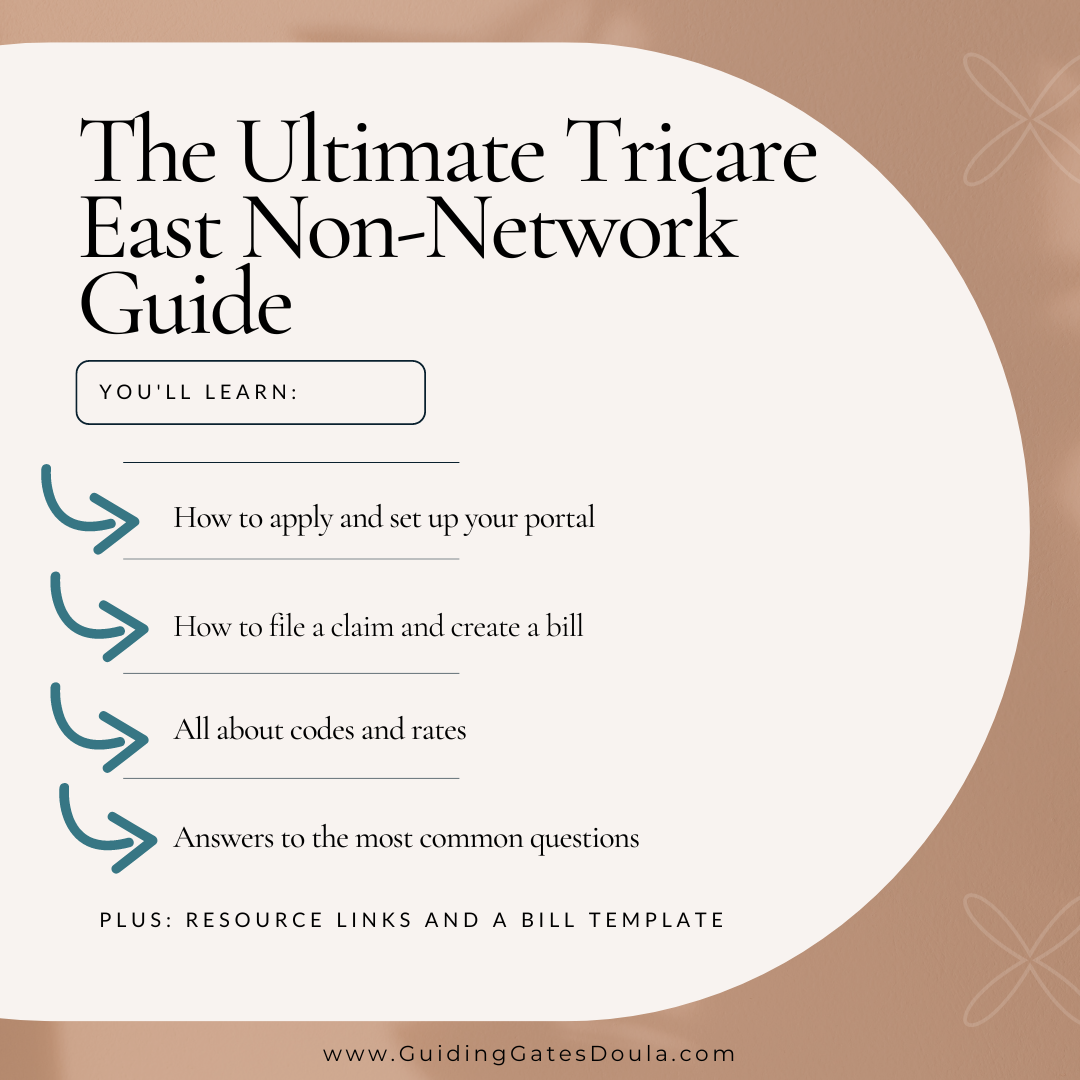The Longest Wait for the Sweetest Reward
Waiting is hard. You probably never expected to still be pregnant or maybe you aren't surprised to be here today, but you weren't prepared to feel the way you do. The weeks can feel like years.
Maybe you've made great physical sacrifices and being pregnant hurts. But you swore you'd choose discomfort over induction. You might even be feeling a bit embarrassed because you told your family and friends that baby would be here by a certain date and that date has passed. A great approach when well-meaning people ask when it's finally going to happen say, "Baby gets to pick the day, not me or the provider". Sometimes, it's ok to make your inner circle smaller and be very honest about how those questions make you feel. The people who truly care for you will understand. You might be feeling pressured to have this baby by a certain day and you probably have an induction scheduled. However, if you feel like you're hoping to miss that induction and aren't looking forward to it, then the truth is, you're not truly comfortable with it and a deeper conversation is needed. Do you want to completely decline it and have you gone over your options, risks, and benefits? Or is there something about the induction that you're worried about? I encourage you to speak to someone you trust and explore ways to get over that hesitation. The point is, no matter your decision, you should feel confident and safe! Yes, Believing is Achieving!
You may not know this, but I'm also a spin instructor. I've been spinning for more than 10 years and I'm so passionate about it! Turns out, a lot of what I teach and practice during my classes perfectly applies to unmedicated labor. Think about it. A one-hour spin class is a huge physical feat that can seem daunting, yet other people can achieve it. Some even come back for more! They sweat, let go of inhibitions, push themselves past their known limit, go inward, connect with their breath, and feel euphoric when done. You might wonder what those athletes have that you don't.
Want to know the secret? It's peak performance! When you activate the parasympathetic nervous system, you tap into your peak performance. The Right People Make it Happen! Mom after VBAC Mom after VBAC
One of my most recent births was a toughie. Mom labored for over 50 hours, and I remained by her side for about 30 hours. This particular client was seeking to have a vaginal delivery after a Cesarean, and if you know birth, you know this is tricky territory. Most people face resistance and scare tactics from their provider, but this mama was fully informed and found an OB who truly respected her wishes to go into spontaneous labor. He was all for her having a doula and even had to put a nurse in her place when she attempted to schedule an induction. She knew she did not want an induction due to the cascade of interventions that typically follow. Her hope was also to go unmedicated so she chose to labor at home as long as possible. This woman had done her research!
I thought to myself, "Well, let's see if this OB changes his tune when she's actually in labor." Everything You Need to Know Before Your Induction
Inductions are pretty commonplace here in the States (about 25% of labors are induced), but that doesn't mean you are just a number, too. You can definitely come in prepared and make the most of this experience.
I'd also like to mention that time can sometimes feel like the enemy during inductions. If you're "stuck" at 3 cm after 6 hours, it might seem like you'll be doing this for-e-ver and the induction might be deemed failed or the hospital might make you feel rushed, but remember that many pregnant people are (sometimes unknowingly) at 3 cm for up to a week and no one even bats an eye at that. The fact that you have to sit and watch the clock between four white walls makes time seem cruel. Trust that if others can take their time at 3 cm, so can you! The following info applies to labors with no complications to the laboring person or the baby. If you are (or considering becoming) a Tricare Non-Network Doula and could use some guidance, you're in luck! I've created an excellent guide that can help you learn all about working with Tricare as a Non-Network doula. It's detailed, organized, and easy to read. It has helped multiple new and established doulas understand codes, and billing, and find answers to the most common questions.
Currently, doulas are left to guess or rely on others' advice to piece together what we should be doing to serve our military families. I recall being in literal tears trying to navigate coding, billing, and searching endlessly on the Humana website for answers. I took all of that knowledge and created this guide just for you! This guide is specific for Tricare East doulas, but lots of the info applies to Tricare West. It's the guide you wish Tricare had provided you with. If you are interested, please make a $25 PayPal payment to @GuidingGatesDoula and you'll get access to the doc. Please include your email in the note. I also offer consults to answer your Tricare questions. Please book here. What's Wrong With Going Past 40 Weeks?
We often don't envision ourselves going past our due date, but it's actually a variation of normal. In fact, most first-time moms give birth closer to 41 weeks. As you get close to 40 weeks, you're likely looking at the calendar and wondering how much longer you'll be pregnant. In this blog post, I want to talk about going past 40 weeks. Why is it that many providers want to induce at 41 weeks and what are the risks of going past 40 weeks?
I will start by saying that when a provider recommends an induction is based on their preference, their schedule, your and your baby's health, and the current and possible risks of remaining pregnant. In other words, there's never really a hard and fast rule to induce as it will vary according to those factors. Ultimately, you have the right to decide whether to induce labor or wait for spontaneous labor with appropriate fetal monitoring. The distinction between elective versus medically indicated induction is not always clear. Some providers consider induction for 40+ weeks of pregnancy alone to be medically indicated because of the increased risks of complications that come with longer pregnancies. Others, look into your specific risk factors and manage your care at 40+ weeks with additional testing (NSTs and ultrasounds) to ensure you and baby are doing well. From my experience, with the clients I have worked with, truly supportive providers give them the option to stay pregnant beyond 41 weeks. They offer additional testing to check on baby's development and placental function and rarely induce unless there is a true need...not a possibility of risk. Simple things can make a huge difference in improving your labor experience.
When we know better, we do better! Bonus: Not sleeping or resting in the beginning of labor, especially if you're being induced. Why Exploring Your Unwanted Birth Matters
When it comes to labor prep you know to get your body ready for the big day. You will practice yoga, find a breathing technique that works for you, fuel your body with the right food, and become mindful of your body's mechanics. But did you know the most important labor work is mental?
The deepest work you will do in labor is emotional, mental, and spiritual. You will need to surrender to the great mystery that is childbirth. You will not know how or when baby will come. You will need to give up any time limits, expectations, and control to go deep within yourself and labor peacefully. Labor is not a time for holding back our primal instincts or allowing fear to hold us back. It's a time of surrender and acceptance. Curious about doula coverage with Tricare? Read on to learn more and reach out if you have other questions! Do I need a referral?
If you have Tricare Prime you will need a referral. Tricare Select does not need one.
How do I get a referral?
Find a Tricare approved doula and give her name, NPI, and contact info to your OB or midwife. I recommend you frequently check up on the status of your referral. If your provider is having a hard time creating one for you, speak to Patient Advocacy or contact your PCM.
How do I find a Tricare approved doula?
Log into Health Net or Humana Military. Be sure to search for In-Network and Non-Network doulas. Many newly approved doulas have not been added to the directory, so you could also run a Google search and ask the doula directly if she is Tricare approved.
What's the difference between In-Network and Non-Network doulas?
The main difference for you is that an In-Network doula should not be asking you for payment upfront. They will work directly with Tricare to get paid. Most Non-Network doulas will require you to pay them directly and they will create a bill that you can later submit to Tricare for reimbursement. Non-Network doulas may also charge 15% more than the allowable Tricare amount.
How much does Tricare cover?
The amount is specific to location, but the average total is about $966.
Will there be any out of pocket costs?
A Non-Network doula is allowed to charge up to 15% more than the allowable amount. However, if the total cost of any doula's package is more than that, she might give you two bills: one for Tricare and another for the difference that Tricare does not cover and it might include additional services. Ask up front what your out of pocket costs will be after reimbursement.
How do doulas bill Tricare?
All In-Network doulas directly bill Tricare as do a few Non-Network. However, the majority of Non-Network doulas will provide you with a bill that will itemize your number of visits and your labor details. You will see the total you paid her broken up amongst those visits.
Does a doula have to provide me with the six allowable visits?
No, she will likely provide you with the same amount of visits she offers to her non-Tricare clients.
Are virtual prenatal visits covered?
Yes.
Will I be reimbursed for virtual labor support?
No. Ask your doula what your financial responsibility is if labor support becomes virtual
What if a backup doula is used?
Only a Tricare-approved backup doula is eligible for reimbursement. If a non-Tricare doula is used, you will not be reimbursed for her service. It is illegal for your original doula to bill Tricare for a labor she did not attend. Ask if your doula's backup is also Tricare-approved.
Will I be reimbursed if labor ends in a C-section or loss?
Tricare will reimburse the cost of labor no matter the outcome as long as the doula provided any amount of in-person support.
What if I no longer need doula support or she fails to make it?
If you schedule a C-section and choose not to have a doula, if you fail to call your doula, or if she doesn't make it in time to provide in-person support, you may incur out of pocket costs or she could offer additional services in lieu of reimbursement. Make sure your contract details both of your financial responsibilties in the event of failure to provide services.
Will the demonstration cover postpartum doulas?
No. However, an approved labor doula may choose when to use her six allowable visits.
When can I set up visits with a doula?
You may hire a doula at any point during your pregnancy but Tricare will not cover sessions before 20 weeks.
How do I submit a bill for reimbursement?
Most Non-Network doulas will provide you with a super bill that will include codes and fees. You will need to mail this along with DD Form 2642 to the appropriate address. You have one year from date of service to submit your claim. If your claim is denied, reach out to your doula ASAP so she can make any corrections. Most claims are processed by Tricare within 30 days (but could take up to 90) and a check will be mailed to you. You can check the status of your claim by logging into your Tricare portal or giving them a call.
Tips From a Doula Who Knows What Works
Maybe the hospital amenities or sense of safety have drawn you in. Or maybe you can't imagine delivering without your rock star team. Or maybe hospital births are just the way things are done. Whatever the reason, I'm sure you want to make it the best possible experience and avoid any unnecessary interventions.
BEFORE YOU GO •Read up on your hospital's policies and discuss the ones you aren't comfortable with to try and find a compromise or alternative with your care team. •Tour the hospital and learn how to enter the labor and delivery department (after hours too). Find out what the in-processing procedure looks like, what you can sign ahead of time, and what is done during triage. Ask what signs you need to show before being admitted. |
Archives
February 2024
Categories
All
|
|
Guiding Gates Doula LLC
|
(719) 428-6929
|
Hampton • Norfolk • Williamsburg • Yorktown • Newport News • Smithfield












 RSS Feed
RSS Feed